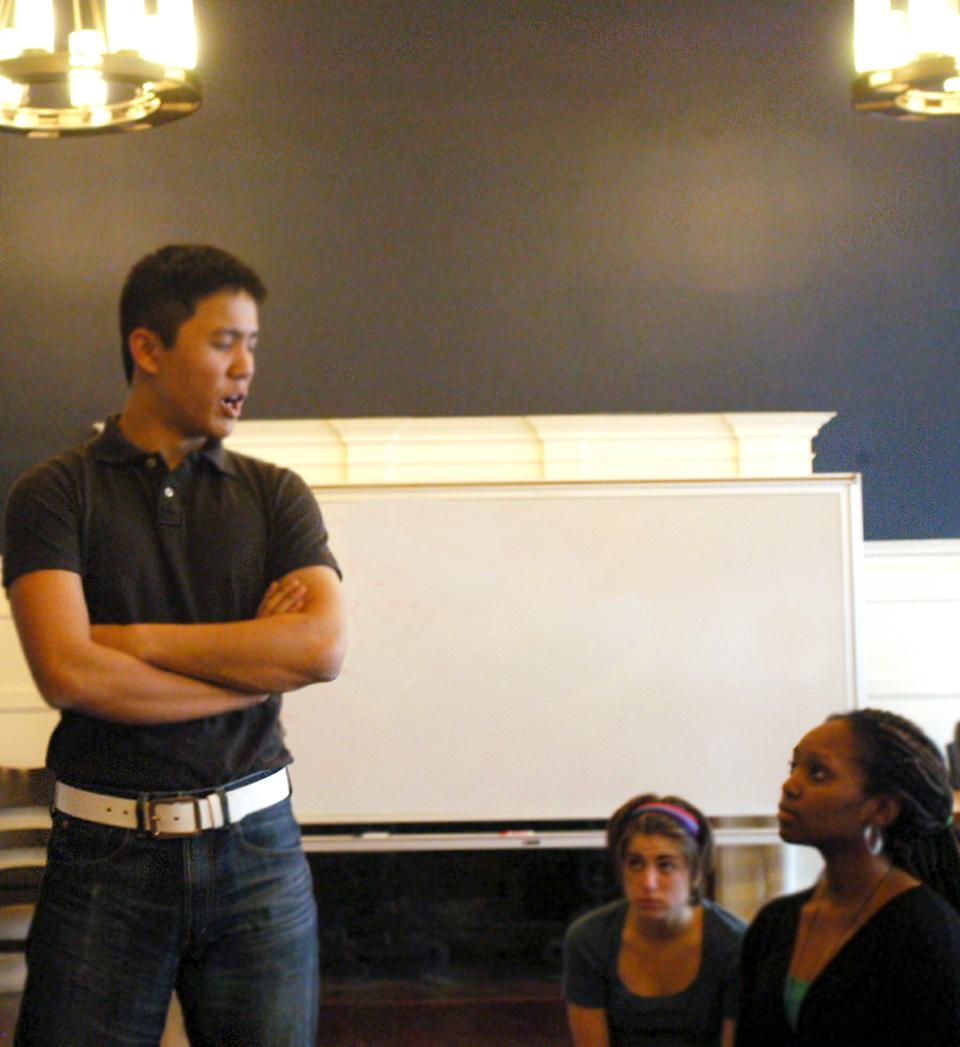
News
Summers Will Not Finish Semester of Teaching as Harvard Investigates Epstein Ties

News
Harvard College Students Report Favoring Divestment from Israel in HUA Survey

News
‘He Should Resign’: Harvard Undergrads Take Hard Line Against Summers Over Epstein Scandal

News
Harvard To Launch New Investigation Into Epstein’s Ties to Summers, Other University Affiliates

News
Harvard Students To Vote on Divestment From Israel in Inaugural HUA Election Survey
Death and the King's Horseman

Nov. 11-14, 17-20, 7:30 p.m. & Nov. 14,
2:30 p.m. in the Loeb Ex
Directed by Abigail F. Schoenberg ’12
Produced by Jacqueline P. Palumbo ’11
There are few things in life that everyone shares, but death is on top of the list of all that is inevitable. In Abigail F. Schoenberg’s ’12 directorial debut, she has chosen to meditate on this idea with the production “Death and the King’s Horseman” by Wole Soyinka.
The play is set in colonial Nigeria where, following the dictates of Yoruban culture, the King’s Horseman, Elesin, (Yi Jun Tan ’13) must commit ritual suicide 30 days after the death of the king to follow him into the afterlife. And so “Death and the King’s Horseman” begins on the dawn of that fateful day when Elesin must battle against his opposing desires to maintain his honor by performing the ritual or abandon his heritage by pursuing a passionate love of life.
Rather than emphasize the colonial dichotomy between Africans and Europeans in which the play is historically situated, Schoenberg and producer Jacqueline P. Palumbo ’11 decided on colorblind casting to reflect the universality of the script’s themes.
“These issues of figuring out who you are, what your culture is, what your life means are relevant to everyone,” Palumbo says.
Likewise, Schoenberg adds that even though this interpretation of Soyinka’s work does not stay completely faithful to the original text, her goal is for the audience to be transported to a place where they can reflect on the subjective nature of life and death regardless of one’s race.
“I think [Soyinka] would be satisfied with how we are… trying to create a space for the concept of transmission, and that any color person in the audience would be able to get it,” she says.
—Maya I. Anderson
Want to keep up with breaking news? Subscribe to our email newsletter.
